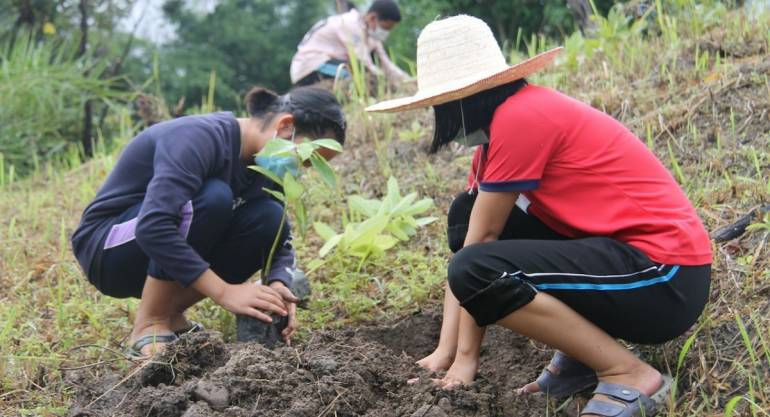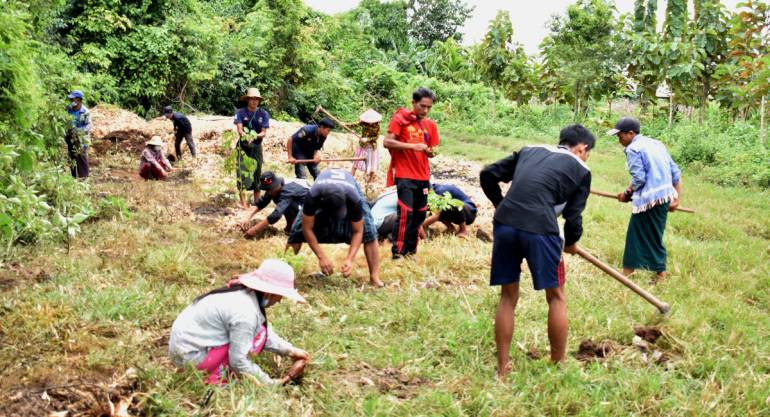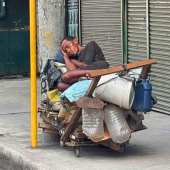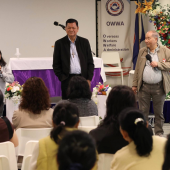Jesuits in Asia Pacific to plant 40,000 trees in four Southeast countries

As the 40th anniversary of the Jesuit Refugee Service (JRS) in 2020, 40,000 trees will be planted in Cambodia, Indonesia, the Philippines, and Thailand to strengthen their social and ecological systems.
Project 40-4-40 also known as the “Growing Canopies, Strengthening Communities project” is an attempt in concrete ways to commit the call of poverty and reconciliation with creation, according to the Jesuit Conference of Asia Pacific (JCAP) Apostolic Plan 2021-2025.
In this project 40-4-40, Jesuit Refugee Service Asia Pacific (JRSAP), Jesuit Conference of Asia Pacific (JCAP), Committees on Reconciliation with Creation (RWC), and Indigenous Ministry (JCIM), and Youth Ministry/MAGIS collaboratively started a year-long environmental campaign to grow culture and support the marginalized.
JRS Asia Pacific Director Louie Bacomo said, “The cultural and environmental integrity of these communities is being pressured, threatened, and disrespected. We are called to an ecological conversion and live a life that respects and promotes integral ecology and care for our common home.”
Growing forests will help the communities not to leave their places in the Asia Pacific because the marginal communities depend on the forests for their livelihood. Thus, raising the forests means raising the communities. It will maintain the cultural and social environment.
Ornich, a Karen youth from Omkoi in northern Thailand told to JCAP, “This project has strengthened our relationship with friends and communities. More importantly, I learned to treat nature with a sense of reverence as it is not only a source of life but God’s creation.”
In Cambodia, five communities planted 4,000 endemic trees in Prey Lang (“our forest” in the Kuy language) which is the largest lowland evergreen forest in mainland Southeast Asia and Cambodia’s largest protected area. Cambodia’s government announced it as a wildlife sanctuary in 2016.
Marlon E. Apan, Manobo youth leader from North Cotabato in the Philippines said to JCAP, “While we’re young, we must unite. We will be the next leaders. And when we become old, we will have a legacy to leave for the next generation.”
Groups from five provinces in the Philippines planned to plant 22,000 trees and 50 percent fulfilled the plan with the help of Jesuits parishes in Bukidnon, University outreach centers in Davao and Zamboanga, and private individuals.
Deither Dum-ogan, Umayamnon youth leader from Bukidnon in the Philippines said to JCAP, “Let us not wait until all the trees have disappeared, the forests have gone, and more natural calamities besiege us. We have to act now while there is still time.”
As said in jcapsj.org, in northern Thailand, there are 93,000 refugees from Karen and Karenni ethnic groups from Myanmar due to the ongoing conflict.

The Karen youth from six boarding centers and 15 communities in the diocese of Chiang Mai, Thailand, planned to plant 7400 trees.
Before the process of planting in the Chiang Mai Diocese, Thailand, the awareness session was taken place with the inputs from Pope Francis’ 2015 encyclical letter “Laudato si’: On Care For Our Common Home.”
Pornchai, a Karen youth from Mae Sariang in northern Thailand expressed his joy to JCAP, “I feel very happy when we plant trees with our own hands. I feel closer to nature as our elders have told us that if we care for nature, nature will care for us. Tree planting is a kind of reconciliation with the fallen trees we have cut or burnt when we prepared farmland.”
The planting of trees is not a single act but it has the benefits of organization, planning, and involvement of communities which will help the building of communities. Building communities is a way to rediscover and maintain culture, spirituality, and livelihood.
In Myanmar, communities from St. Michael Parish, Nanhlaing village in Kachin State were the first to participate in the project, and communities from several townships in Kayah State and Southern Shan State also joined in this project later.
A Kayah youth from Demoso in Kayah State, Myanmar said to JCAP, “Tree planting is not only a good activity for the environment and climate, but it also enhances community spirit, peace, and reconciliation between the two divided groups in our community. It restores positive relationships among us.”
In Laos, the communities from Vientiane Diocese were involved in this project.
Bacomo gives thanks to all the participants in project 40 for 40.
“Project 40-4-40 will pursue its partnerships and implementation especially since we have exceeded our target. We thanked all the people and organizations who have helped sustain our collaboration.”
“The JCAP is the main coordinating body of the apostolic missions of the Jesuits in the Asia Pacific region. The Jesuit Conference is home to approximately 1,600 Jesuits or 10 percent of the total number of Jesuits in the world coming from 16 countries in the Asia Pacific region,” says Jesuit Father Vidal Gornez Jr, treasurer and development officer of JCAP.
With many friends, benefactors, and collaborators, the JCAP is engaged in frontier services in the fields of evangelization, education, parish and pastoral work, retreat ministry, indigenous peoples, care for the environment and many other apostolic works, he adds. - Patrick Soe Htun with the inputs from jcapsj.org
Radio Veritas Asia (RVA), a media platform of the Catholic Church, aims to share Christ. RVA started in 1969 as a continental Catholic radio station to serve Asian countries in their respective local language, thus earning the tag “the Voice of Asian Christianity.” Responding to the emerging context, RVA embraced media platforms to connect with the global Asian audience via its 21 language websites and various social media platforms.














